Introduction
Welcome to the World of E-commerce SEO
“In the dynamic and ever-evolving realm of digital commerce, mastering the intricacies of E-commerce SEO for WordPress is not just a strategy but a necessity. As the online marketplace continues to expand and competition grows fiercer by the day, entrepreneurs, both seasoned and novice, must recognize the pivotal role that E-commerce SEO for WordPress plays in establishing a robust online presence and driving sustainable growth. Whether you’re a seasoned veteran with years of experience navigating the digital terrain or a fresh-faced entrepreneur embarking on your inaugural online venture, embracing the nuances of E-commerce SEO for WordPress is paramount. It’s not merely about understanding search algorithms or keyword optimization; it’s about harnessing the power of tailored strategies and best practices to elevate your WordPress online store above the noise, attract quality traffic, and ultimately, cultivate lasting success in the fiercely competitive digital arena.
Importance of SEO for WordPress Online Stores
SEO serves as the cornerstone of online visibility and success for WordPress-based e-commerce ventures. It’s not merely about getting your store noticed; it’s about ensuring that your products are found by potential customers amidst the sea of competition. With effective SEO strategies, you can drive organic traffic to your site, increase conversions, and ultimately boost your bottom line.
Understanding E-commerce SEO
What is E-commerce SEO?
E-commerce SEO involves optimizing your online store’s digital presence to rank higher in search engine results pages (SERPs). Unlike traditional SEO, which focuses on driving traffic to informational websites, e-commerce SEO revolves around showcasing and selling products. This requires a unique approach that prioritizes product visibility, user experience, and conversion optimization.
Key Differences Between Traditional SEO and E-commerce SEO
While traditional SEO aims to attract visitors and provide valuable information, e-commerce SEO goes a step further by guiding potential customers through the purchasing journey. This entails optimizing product pages, streamlining the checkout process, and addressing user intent with targeted keywords. Additionally, e-commerce SEO often involves managing product inventory, handling customer reviews, and optimizing for mobile devices—all of which require specialized strategies tailored to the online retail environment.
Setting Up Your WordPress Store for Success
Choosing the Right E-commerce Theme
Your WordPress theme serves as the foundation of your online store, influencing its appearance, functionality, and SEO-friendliness. When selecting a theme, prioritize responsiveness, speed, and customization options. Look for themes specifically designed for e-commerce, as they often come equipped with built-in SEO features and compatibility with popular plugins.
Essential Plugins for E-commerce SEO Optimization
WordPress offers a plethora of plugins designed to enhance your site’s SEO capabilities. From comprehensive SEO suites to specialized e-commerce tools, there’s no shortage of options to choose from. Consider installing plugins that facilitate keyword optimization, schema markup implementation, and site performance optimization. Additionally, invest in plugins that streamline product management, improve user experience, and integrate seamlessly with popular e-commerce platforms.
Optimizing Your Site Structure for SEO
A well-organized site structure is essential for both user experience and search engine crawlers. Start by creating logical categories and subcategories that reflect your product offerings. Use descriptive, keyword-rich URLs and optimize your site’s navigation for easy access to product pages. Implement breadcrumb navigation to help users and search engines understand the hierarchy of your site. Finally, ensure that your site is easily crawlable by search engine bots by fixing broken links, eliminating duplicate content, and creating an XML sitemap.
Keyword Research and Strategy
Importance of Keyword Research for E-commerce
Keyword research forms the backbone of any successful e-commerce SEO strategy. By understanding the language and intent of your target audience, you can identify high-value keywords that drive relevant traffic to your site. Conduct thorough research to uncover niche-specific keywords with high search volume and low competition. Consider long-tail keywords that reflect user queries and purchase intent, as they often lead to higher conversion rates.
Tools and Techniques for Effective Keyword Research
Numerous tools are available to assist you in your keyword research endeavors. From free options like Google Keyword Planner and Ubersuggest to premium tools like SEMrush and Ahrefs, there’s no shortage of resources at your disposal. Experiment with different tools and techniques, including competitor analysis, keyword brainstorming, and trend analysis, to uncover hidden opportunities and gain insights into your target market.
Developing a Keyword Strategy for Your WordPress Store
Once you’ve identified your target keywords, it’s time to develop a comprehensive keyword strategy for your WordPress store. Organize your keywords into thematic clusters based on product categories, features, and buyer personas. Create optimized landing pages and product descriptions that incorporate your target keywords naturally. Monitor keyword performance over time and adjust your strategy accordingly to capitalize on emerging trends and opportunities.
On-Page Optimization Techniques
Crafting Compelling Product Descriptions
Product descriptions play a crucial role in informing and persuading potential customers. Opt for unique, descriptive descriptions that highlight the benefits and features of your products. Incorporate relevant keywords naturally throughout your descriptions, keeping readability and user experience in mind. Aim for a balance between informative content and persuasive copy that encourages conversions.
Optimizing Product Titles and Meta Descriptions
Your product titles and meta descriptions are the first things users see when browsing search engine results. Craft concise, attention-grabbing titles that accurately reflect the contents of your product pages. Include relevant keywords near the beginning of your titles to improve visibility and click-through rates. Similarly, write compelling meta descriptions that entice users to click through to your site while incorporating targeted keywords for SEO purposes.
Leveraging Internal Linking Strategies
Internal linking is a powerful yet often overlooked SEO strategy that can enhance the visibility and authority of your WordPress store. Identify key pages and products that you want to prioritize in search engine rankings, and strategically link to them from relevant content throughout your site. Use descriptive anchor text that includes relevant keywords to provide context to both users and search engines. By creating a network of interlinked pages, you can improve crawlability, distribute link equity, and enhance the user navigation experience.
Off-Page Optimization Strategies
Building High-Quality Backlinks for E-commerce Sites
Off-page optimization revolves around building external links from reputable websites to your WordPress store. Focus on acquiring high-quality backlinks from relevant sources within your industry or niche. Leverage content marketing, guest blogging, and influencer outreach to earn natural backlinks that enhance your site’s authority and credibility. Avoid spammy link-building tactics, as they can have detrimental effects on your site’s reputation and SEO performance.
Harnessing the Power of Social Media for SEO
Social media can serve as a valuable ally in your e-commerce SEO efforts. Create engaging, shareable content that resonates with your target audience and encourages social sharing. Share product updates, promotions, and valuable content across your social media channels to drive traffic to your WordPress store. Encourage user-generated content and reviews to foster community engagement and social proof. Additionally, leverage social media advertising to target specific demographics and amplify your reach.
Partnering with Influencers and Affiliates
Influencer marketing and affiliate partnerships can provide a significant boost to your e-commerce SEO strategy. Identify influencers and affiliates within your niche who have a strong following and align with your brand values. Collaborate with them to create sponsored content, product reviews, and promotional campaigns that drive traffic and sales to your WordPress store. Offer incentives such as affiliate commissions or free products to incentivize influencers and affiliates to promote your brand.
Monitoring and Analyzing Performance
Tracking Your WordPress Store’s SEO Progress
Regular monitoring and analysis are essential for evaluating the effectiveness of your e-commerce SEO efforts. Utilize tools like Google Analytics and Google Search Console to track key metrics such as organic traffic, keyword rankings, and conversion rates. Set up custom dashboards and reports to gain insights into your site’s performance over time. Monitor changes in search engine algorithms and industry trends to stay ahead of the curve and adapt your strategies accordingly.
Utilizing Google Analytics and Search Console
Google Analytics provides valuable data about your website’s traffic, user behavior, and conversions. Set up goals and event tracking to measure the effectiveness of your SEO campaigns and identify areas for improvement. Use the Search Console to monitor your site’s presence in Google’s search results and identify potential issues such as crawl
errors, mobile usability issues, and security issues. Leverage the data provided by these tools to refine your SEO strategy and drive continuous improvement.
Adjusting Strategies Based on Performance Data
Based on the insights gleaned from your monitoring and analysis efforts, make data-driven decisions to optimize your e-commerce SEO strategy. Identify underperforming areas and experiment with different approaches to see what works best for your WordPress store. A/B test different elements of your site, such as landing pages, product descriptions, and call-to-action buttons, to identify winning variations. Stay agile and adaptable in your approach, continuously iterating and refining your strategies based on real-time data and feedback.
Advanced Tips and Tricks
Implementing Schema Markup for E-commerce Sites
Schema markup is a form of structured data that provides search engines with additional context about your website’s content. Implementing schema markup for your e-commerce site can enhance its visibility and appearance in search engine results pages (SERPs). Use schema markup to provide rich snippets for product pages, reviews, ratings, and other relevant information. This can improve click-through rates and drive more qualified traffic to your WordPress store.
Utilizing Rich Snippets to Stand Out in Search Results
Rich snippets are enhanced search results that include additional information such as images, ratings, and pricing. By optimizing your product pages with rich snippets, you can make your listings more visually appealing and informative, increasing the likelihood of clicks and conversions. Implement schema markup for product reviews, pricing, availability, and other relevant data to qualify for rich snippets in search results. This can help your WordPress store stand out from the competition and attract more attention from potential customers.
Optimizing for Voice Search and Mobile Devices
As the prevalence of voice search and mobile devices continues to rise, optimizing your WordPress store for these platforms is essential. Voice search optimization involves understanding natural language queries and tailoring your content to match user intent. Focus on conversational keywords and long-tail phrases that mimic how people speak when using voice search. Additionally, ensure that your site is mobile-friendly and loads quickly on all devices. Optimize your site’s layout, navigation, and content for smaller screens to provide a seamless user experience for mobile users.
Conclusion
Recap of Key Strategies for Mastering E-commerce SEO on WordPress
Mastering e-commerce SEO for your WordPress store requires a multifaceted approach that encompasses both on-page and off-page optimization techniques. By focusing on key areas such as keyword research, on-page optimization, link building, and performance analysis, you can improve your site’s visibility, attract more organic traffic, and ultimately drive sales and revenue.
Taking Your Online Store to the Next Level
Armed with the knowledge and strategies outlined in this guide, you’re well-equipped to elevate your WordPress online store to new heights. Continuously monitor your site’s performance, stay abreast of industry trends, and adapt your strategies accordingly to maintain a competitive edge in the ever-evolving world of e-commerce. With dedication, persistence, and a willingness to experiment, you can achieve SEO success and take your online store to the next level of profitability and growth.
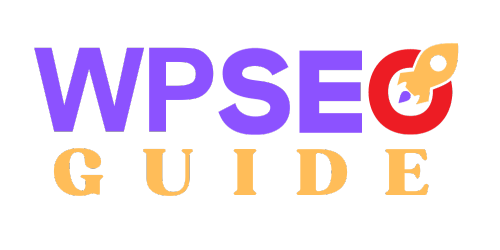
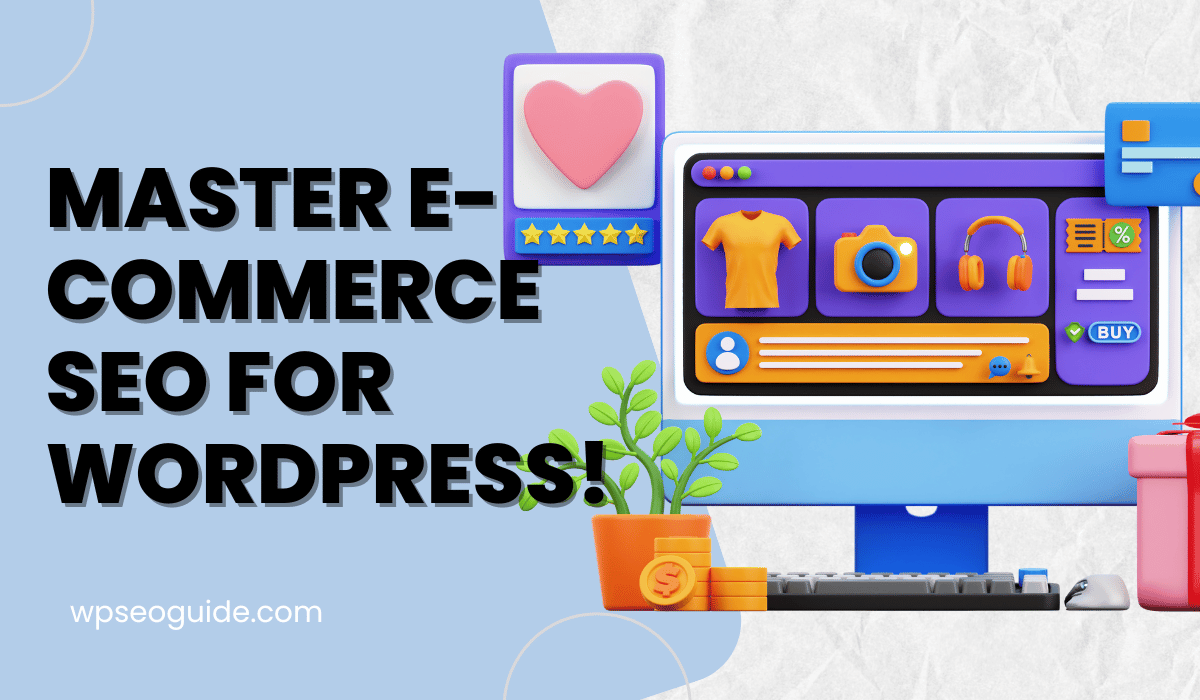
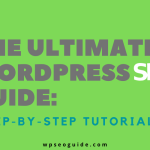
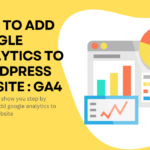
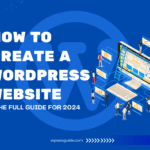
[…] For more detailed insights into mastering E-commerce SEO for your WordPress website, check out “Master E-commerce SEO for WordPress!.“ […]